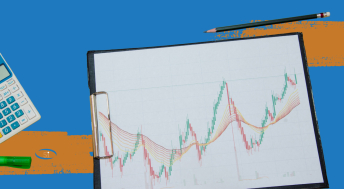From company stability to ‘lazy’ investing, the reasons investors take to dividends have a psychological component
For decades, there has been debate on whether dividends are good for investors. The arguments against a company paying dividends are strong: Dividends are paid with after-tax earnings so paying a dividend leaves less capital in a company; a company growing at 20 per cent or more can re-invest capital and see huge compounding growth versus giving investors cash where they might earn two per cent (and see that income taxed). Famous investors such as Warren Buffett refuse to pay dividends, yet are content to receive them from their company investments.
This week we are going to ignore the academic argument and focus on the psychological and soft benefit of dividends. As investment strategists we certainly know that investors like dividends, whether they make sense for a company to pay them or not. Let’s examine five points regarding this.
Dividends get you back to the basics
In today’s high-speed investment environment, and with trading platforms that have used gamification features such as Robinhood Financial, it is surprising how many investors do not really know what they are buying. Many don’t even care, as long as it goes up, as evidenced by the meme-stock trades that pop up — and crash — every now and then. Dividends can help remind investors what they actually own: a portion, however small, of an actual operating company. Owning shares means you are an owner of a company. As an owner, you should be entitled to some of the profits, and this is exactly what dividends are. Knowing this, you might be inclined to keep your shares longer, if the company is doing well. It can help an investor ascertain the difference between company performance and stock performance, as we are sure you are aware that these two factors often diverge.
Dividend stocks can be less volatile
Companies that pay regular dividends tend to be larger, well-established firms with stable cash flows and solid balance sheets, which help buffer their share prices against large swings. The cash flow from regular dividends offers investors a reliable return even if share prices fluctuate, making such stocks less susceptible to panic selling during downturns. Dividend-paying companies are often found in defensive sectors, which are less sensitive to economic cycles, further contributing to their lower volatility.
Investors see dividend stocks as having higher valuations
This point is debatable. Most investors may believe that dividend stocks get higher valuations in the market but studies do not bear this out. Certain high-quality dividend growers (companies with a long history of increasing dividends) may receive valuation premiums, especially in low-interest-rate or uncertain economic environments, but this is not universally true. We think the investor belief here comes from the above point, that dividend stocks tend to be less volatile. So investors see them holding up better in a market downturn (which is true), and then naturally believe they are worth more in valuation terms (which they are not).
The psychological aspect of doing nothing and getting paid ‘bonuses’
My wife was a high-school math teacher until retiring last year. Once in a while she would coerce me into teaching a class about investment math. I often tried to get lazy teenagers interested in investments by appealing to the “free money” aspect of dividends. Imagine: You sit on your couch playing video games and then money gets credited to your investment account while you do … absolutely nothing. Then, every once in a while, you get a “bonus,” as some companies pay special dividends on occasion. So now, with a special dividend, you get even more free money as a reward for sitting on the couch and being lazy. Dividends are amazing! Sometimes, these comments caused one or two students to wake up a bit. But teaching still remains a harder job than investments, in my view.
Management discipline
We think this is a valid point. A company that pays a regular dividend has to have cash flow available for the payout, every single quarter. Knowing that investors are expecting a dividend, executives of the company have to show discipline. They cannot just randomly go on an expansion or acquisition spree without consideration of the cash flow requirements of that dividend, every three months. When an executive team looks at deals, they need to consider the long-term consequences. Any deal needs to be financed properly in order to make sure the current dividend can be paid. Any deal needs to be a good deal so that it does not impair the company’s dividend-paying ability in the future (and, preferably, allows the company to increase its dividend). Sure, non-dividend paying companies may have more capital available for growth, but this doesn’t mean the expected growth is going to pan out. We think this point is particularly valid at economic peaks, when confidence and stock valuations are high. We have seen many executives go on spending sprees at the exact wrong time (in hindsight). Companies paying dividends just seem to have more self control during ebullient times.
Unlock the Power of Informed Investing with 5i Research!
DIY investing doesn't have to mean going it alone. At 5i Research, we're your trusted partner in navigating the stock market. Our platform offers comprehensive stock and market research, empowering you to make smart investment decisions.
- Investor Q&A: Have burning questions? Get answers from our team of experts and fellow investors in our dedicated Q&A section.
- Research Reports: With over 60 meticulously researched Canadian stocks, our reports offer in-depth analysis, giving you the confidence to invest wisely.
- Model Portfolios, Alerts, Forums, Portfolio Tracking, and Much More.
Take Care,







Comments
Login to post a comment.